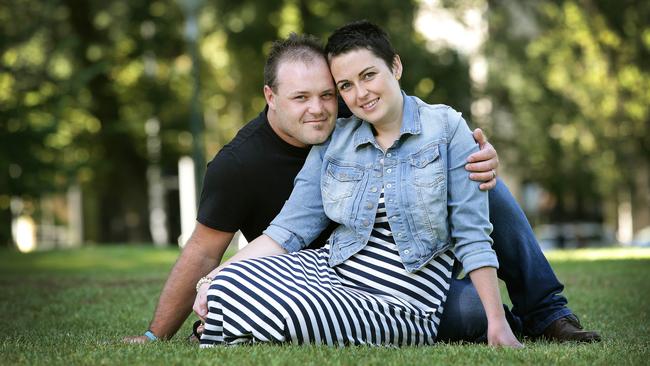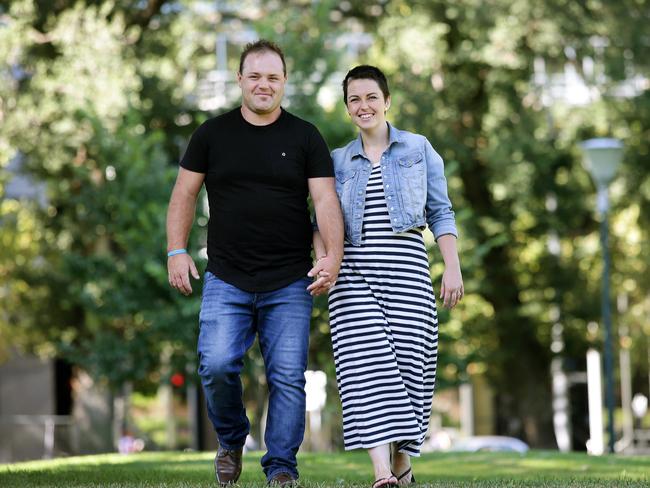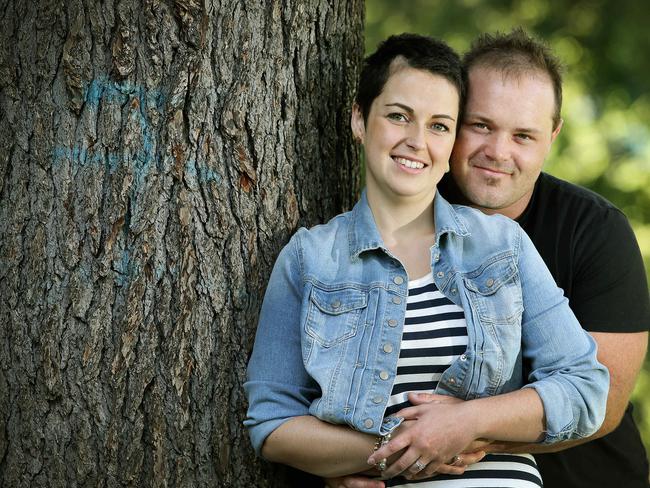Epilepsy trial leaves Victorian woman seizure-free
A VICTORIAN woman is seizure-free after a world-first trial to pump medication directing to her brain to avoid the debilitating side-effects of tablets.

VIC News
Don't miss out on the headlines from VIC News. Followed categories will be added to My News.
A VICTORIAN woman is seizure-free after a world-first trial to pump medication directly to her brain to avoid the debilitating side effects of tablets.
And after a second epilepsy patient underwent the procedure last week, neurologists say the direct-delivery method has the potential to revolutionise the treatment of many neurological conditions by making existing medications more effective and potent.
They are now working to next trial the device to deliver medication directly to the site of brain tumours and the brain regions responsible for certain mental illnesses.
Natalie Kellalea’s seizures were so severe and unpredictable that the 27-year-old could not take a shower or walk to the letterbox on her own.
In the lead-up to the December 2 surgery at St Vincent’s Hospital, the Nurmurkah newlywed had been in hospital for almost three months for her own safety.

HOW IT HAPPENED: MELBOURNE EPILEPSY TRIAL DELIVERS MEDICATION DIRECTLY INTO BRAIN
Ms Kellalea had tried every combination of every available anti-epileptic drug, and still the seizures became more violent and more frequent.
As part of a trial with St Vincent’s, Royal Melbourne Hospital and the US start-up company Cerebral Therapeutics, she was the first patient to have a pump implanted into her stomach.
The palm-sized pump sends the drug sodium valproate through a tube directly to the site in her brain — behind her right temple — where the seizures are evolving.
Trial leader and St Vincent’s director of neurology Professor Mark Cook, said it was unknown how much of an oral medication landed in the place where it was needed.
This new technique aims to make existing medications more potent, and avoid side effects, by delivering it directly to the relevant site in the brain.
“We had high hopes for this treatment and it’s worked better than expected,” Prof Cook said. “We’re giving a drug that has been around for a long time in a new way, and the effect is much different. That’s important because there may be lots of other existing drugs that can be made more powerful if we give them in this way.”


Ms Kellalea said her memory had improved, her speech was clear, she no longer needed to sleep all day and could leave the house on her own.
“I was at the desperate point. This was the last option I really had,” Ms Kellalea said.
“I’ve got so much energy. For what I had to go through, it’s been worth it.”
MEDICINAL CANNABIS IMPORTED FOR CRITICALLY ILL VICTORIAN CHILDREN


